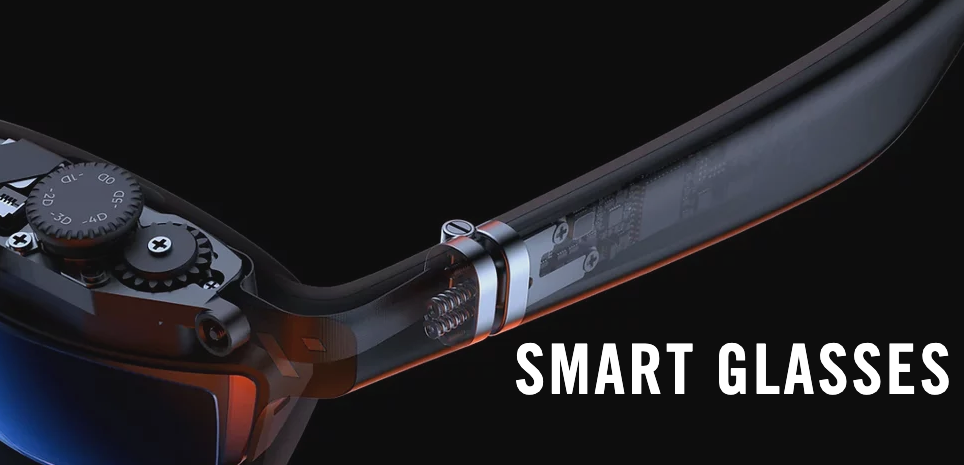For this assignment, I created a website presentation that reviews and analyses smart glasses, exploring their functionality, applications, challenges, educational potential, and future directions.
I became interested in this technology after watching Google’s recent video demonstration of how smart glasses could be used to break language barriers. I wanted to learn more about recent advancements and challenges around this technology to draw a more realistic and critical view.
To view the presentation (desktop or mobile) click on the following link: Smart Glasses
Hope you find it informative and enjoyable.

Hi Eduardo,
I can’t help but think about if someone was to time travel from 25 years ago, how they would react to someone talking on their airpods and now, if they were able to answer phone calls through smart glasses, and act as if that person was present, how odd that might seem to the time traveler. These were aspects predicted by a Korean Drama called, “My Love Holo,” where people viewed a girl as odd when she walked around “talking to herself” but was in fact talking to the smart glass version of “siri.” A worry I might have would be how Smart Glasses may decrease or affect social interactions? We focus a lot of the curriculum learning with technology or education, that sometime we forget that social learning is also educational and part of the learning in schools.
Hello Rika, thanks for sharing your thoughts on this topic. I also wonder the same thing! I think sometimes when we look at these emerging technologies they can feel as though they are too far out or even impractical. However, I think that the nature of technologies is to always expand into new dimensions that open up new possibilities that, over time, can become ‘normal’. I think this will be the case for AR. I am not sure it will necessarily be through smart glasses (maybe!) but I think the idea of augmenting our reality will happen in the next couple of decades, as it already showing. I also wonder how will this affect social interaction, as these technologies are quite immersive which means that there’s a chance that users will detach from reality as they engage in augmented reality and, even more so, in virtual realities. I think it will be interesting to see how social media will be integrated into these technologies to allow relationships and empathy.
I was mind blown while reading about the future of smart glasses, especially Mojo Lense! We are getting closer and closer to the technological singularity, a time when humans and technologies will become inseparable, resulting in even more changes to human civilization. It is exciting and scary simultaneously, but change is always scary. I can see how beneficial it would be to use AR and smart glasses in education. We would take a significantly less amount of time to learn and teach a skill, and we would be immersed in a low-stress environment that would aid in learning and applying what we’ve learned confidently.
Hello Maria. I agree – the Mojo Lens looks very sci-fi to me! It is intriguing to think about this integration between humans and technologies that is taking place. I was amazed a few months ago when I saw the video of how a monkey was able to operate technologies through thought after a Neuralink brain implantation. I think this integration between humans and technologies will have profound implications for helping people with disabilities and improving our lives. Of course, as you point out there are things to be scared about because it will bring complex issues in regards to ethics, privacy, and security. I think this will inevitably happen when new technologies rise and all we can do is to think ahead of time about what these issues could be and some organizational structure that leads with it (committees, for example). The issue is complex though as most of the companies that develop these technologies are private and have commercial interests, and also some problems can be anticipating given the novelty of the technology. We’ll see :).